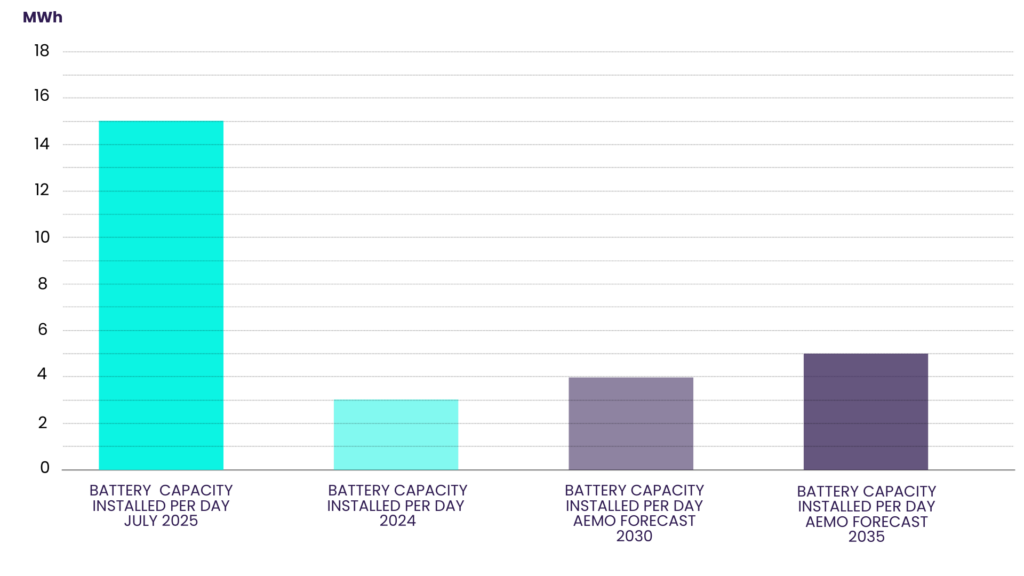
Australia’s market for home solar batteries isn’t just growing. It is fundamentally reshaping our energy system. What began as a federal rebate for households has rapidly turned into a storage boom that exceeds even the most bullish forecasts. While the media spotlight remains on suburban rooftops, the strategic implications for commercial energy buyers, corporate strategy, and grid dynamics are where the real opportunity lies.
For years, businesses have carried the burden of peak demand. When the sun goes down and usage spikes, coal and gas generators set the price. Everyone else pays the bill. Now solar batteries are changing the equation. These systems act as distributed micro power plants. They flatten demand peaks, reduce volatility, and begin to edge into traditional generation markets. The likely outcome is that commercial buyers will face new dynamics in wholesale pricing, contract structures, and risk management. Those who adapt fastest will capture the upside.
The surge in solar batteries points to three important signals for the corporate market:

Source: Green Energy Markets
For the commercial and industrial sector, the strategic lens must shift. Energy is no longer just a cost. It has become a competitive tool.
This is not just a household story. It is a signal that the energy system can change faster than most models anticipate. For businesses, energy procurement is evolving from line item to strategic edge. The advantage will go to those who act early, anticipate ripple effects across the sector, and embed resilience into every supply contract.
At Utilizer, we believe the household battery boom is only the beginning.. The real question for leaders is not whether they will adapt, it's whether they will get ahead while the market is still catching up. Get in touch with our team for a chat about what this shift means for your business.
More power to you,
Heatwaves and the Energy Market
January 13, 2026
Explore our monthly market wraps for a comprehensive outlook on the Australian energy market, and start making smarter energy decisions.